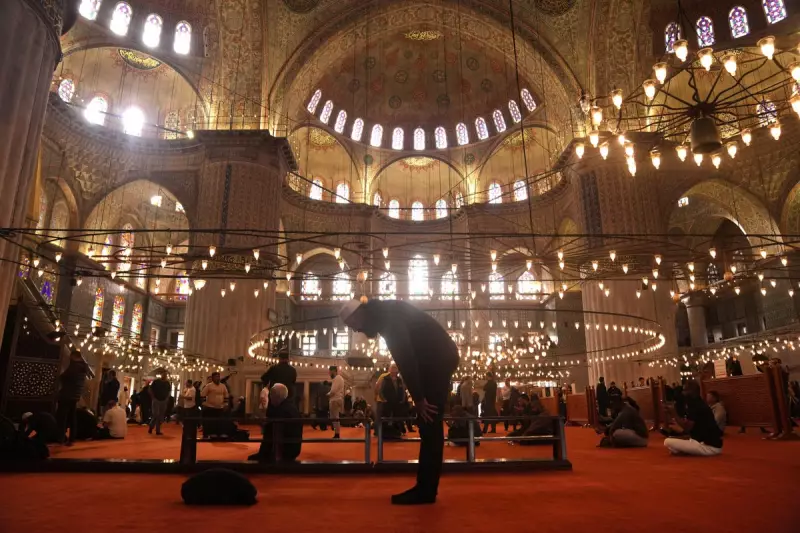
Historic Papal Visit to Turkey Begins
Pope Leo XIV has embarked on his first international journey since assuming the papacy, arriving in Turkey on Thursday 27th November 2025. The visit represents a significant moment in religious diplomacy, continuing plans originally made by his predecessor, the late Pope Francis.
The newly elected pontiff's itinerary includes both political and religious engagements across Turkey, with the trip scheduled to continue onward to Lebanon. This marks the first foreign trip for the history-making American pope, whose visit comes at a crucial time for international peace efforts.
Political and Diplomatic Engagements
Upon arrival in the capital Ankara, Pope Leo XIV is set to meet with Turkish President Recep Tayyip Erdogan. Following this high-level political discussion, he will address the country's diplomatic corps in what observers anticipate will be a significant speech touching upon regional conflicts.
Turkey's role as a key intermediary in peace negotiations for both Ukraine and Gaza makes this visit particularly timely. The nation of over 85 million predominantly Sunni Muslims has hosted preliminary talks between Russia and Ukraine while offering to participate in stabilisation efforts in Gaza.
Despite Turkey's growing military significance as NATO's second-largest army after the United States, many Turkish citizens facing economic challenges have shown limited interest in the papal visit. Market instability and domestic political changes have created a cost-of-living crisis that occupies most people's attention.
Religious Significance and Interfaith Dialogue
The primary purpose of Pope Leo XIV's journey is to commemorate the 1,700th anniversary of the Council of Nicaea, Christianity's first ecumenical council held in 325 AD. The historic gathering took place in what is now Iznik, northwestern Turkey.
In a powerful symbol of Christian unity, Pope Leo will pray with Ecumenical Patriarch Bartholomew, spiritual leader of the world's Orthodox Christians, at the original site of the council. The two religious leaders are expected to sign a joint declaration, highlighting efforts to bridge divides dating back to the Great Schism of 1054.
The visit also includes significant interfaith components, with plans for the Pope to visit Istanbul's famous Blue Mosque and preside over an interfaith meeting. Asgın Tunca, an imam at the Blue Mosque who will welcome the pontiff, expressed hope that the visit would help advance Christian-Muslim understanding and counter misconceptions about Islam.
Challenges and Delicate Moments
One of the more sensitive aspects of the visit will occur on Sunday when Pope Leo XIV visits the Armenian Apostolic Cathedral in Istanbul. This location has hosted nearly all visiting popes since Paul VI, with the exception of Francis who visited Turkey in 2014 during the patriarch's illness.
The Vatican's relationship with Turkey faced significant strain in 2015 when Pope Francis described the slaughter of Armenians by Ottoman Turks as "the first genocide of the 20th century", prompting Turkey to recall its ambassador. Turkey has consistently denied that genocide occurred.
Observers note that Pope Leo XIV has generally been more cautious in his public statements than his predecessor, though the Vatican must also navigate complicated relations with Armenia following criticism of its interfaith outreach to Azerbaijan.
The Catholic Church faces ongoing challenges in Turkey, where it lacks formal legal recognition despite having approximately 33,000 members. This status creates numerous bureaucratic difficulties, though the Church's international profile provides some protection.
As Pope Leo XIV continues this groundbreaking first foreign trip, the world watches how his leadership will shape interfaith relations and diplomatic engagement in a region crucial to global stability.





